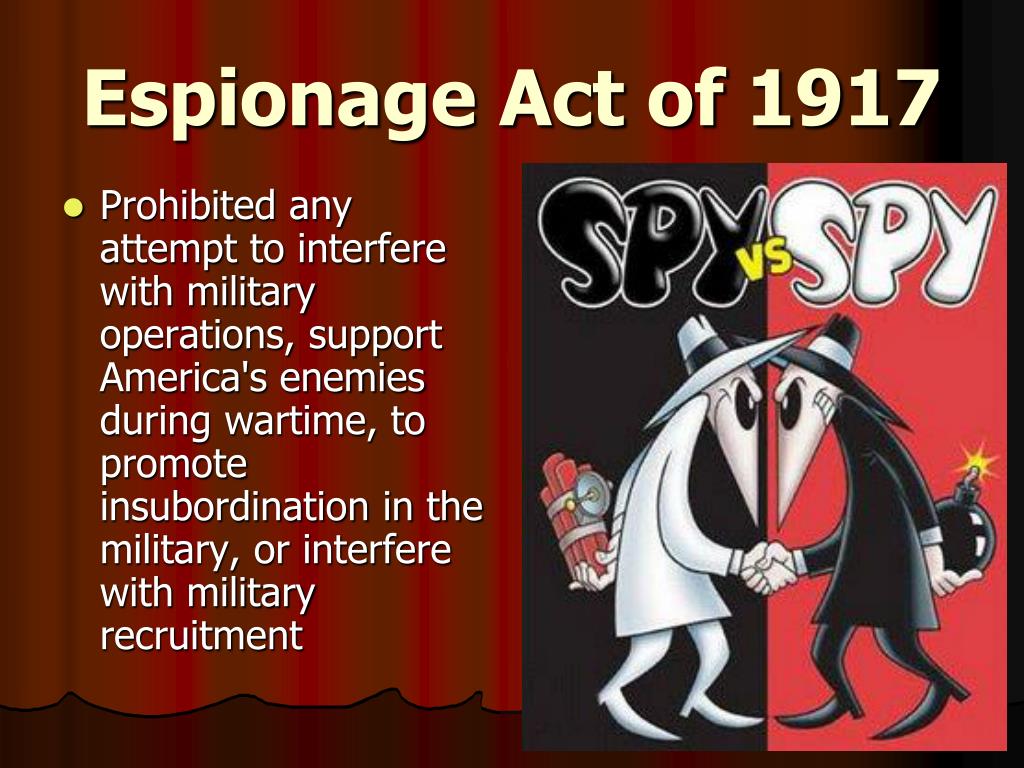


1005, provided that an indictment for any violation of this section and sections 793 and 794 of this title, other than a violation constituting a capital offense, may be found at any time within ten years next after such violation shall have been committed, but that such section 19 shall not authorize prosecution, trial, or punishment for any offense "now" barred by the provisions of existing law. Statutory Notes and Related Subsidiaries Indictment for Violating This Section and Sections 793, 794 Limitation PeriodĪct Sept. 103–322 substituted "fined under this title" for "fined not more than $10,000". Mandatory punishment provision was rephrased in the alternative.ġ994- Pub. Similar harboring and concealing language was added to section 2388 of this title. 2147.) Historical and Revision Notesīased on section 35 of title 50, U.S.C., 1940 ed., War and National Defense ( June 15, 1917, ch. Whoever harbors or conceals any person who he knows, or has reasonable grounds to believe or suspect, has committed, or is about to commit, an offense under sections 793 or 794 of this title, shall be fined under this title or imprisoned not more than ten years, or both. 736, related to application of this chapter within the admiralty and maritime jurisdiction of the United States, on the high seas, and within the United States. 795, struck out item 791 "Scope of chapter".ġ958- Pub. 4923, redesignated item 798, "Temporary extension of section 794", as 798A.ġ961- Pub. Shortly after 3 p.m., the Justice Department confirmed that Trump’s lawyers would not oppose the public release of the search warrant and underlying receipt of materials, which had already begun to circulate widely.Violation of regulations of National Aeronautics and Space Administration.ġ990- Pub. Stone’s attorney Grant Smith said that the longtime Trump ally “has no knowledge as to the facts surrounding his clemency documents appearing on the inventory of items seized from former President Trump’s home at Mar-a-Lago.”

Other items on the list indicate the presence of classified material, describing them as “miscellaneous top secret documents” and “miscellaneous confidential documents.” 5 by federal magistrate judge Bruce Reinhart, revealed that dozens of items were seized, most of them described in vague terms like “leatherbound box of documents,” “binder of photos” and “handwritten note.”

But after several rounds of negotiations in which materials were recovered by the Archives, federal investigators came to believe Trump hadn’t returned everything in his possession. Trump has claimed since Monday that he has cooperated with investigators from the National Archives and FBI for months and that the unannounced search was an unnecessary escalation. 2020, the final month before the election, then-chief of staff Mark Meadows declared to a court that a Trump tweet deeming all Russia probe-related materials declassified was not in fact a “self-executing order” from the president. “The idea that some paper-pushing bureaucrat, with classification authority delegated BY THE PRESIDENT, needs to approve of declassification is absurd.”īut that’s stands in contrast with how Trump’s office has handled matters of declassification in the past. “The power to classify and declassify documents rests solely with the President of the United States,” the statement read. Trump’s office, in a statement provided to John Solomon - the conservative journalist who is one of Trump’s authorized representatives to the National Archives - claimed late Friday that Trump often took classified documents to his residence and had issued a never-before-revealed “standing order” that all documents removed this way “were deemed to be declassified.”


 0 kommentar(er)
0 kommentar(er)
